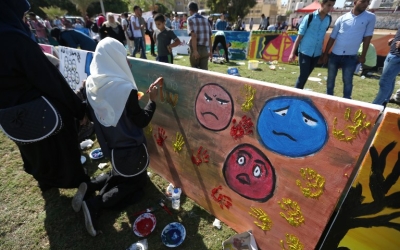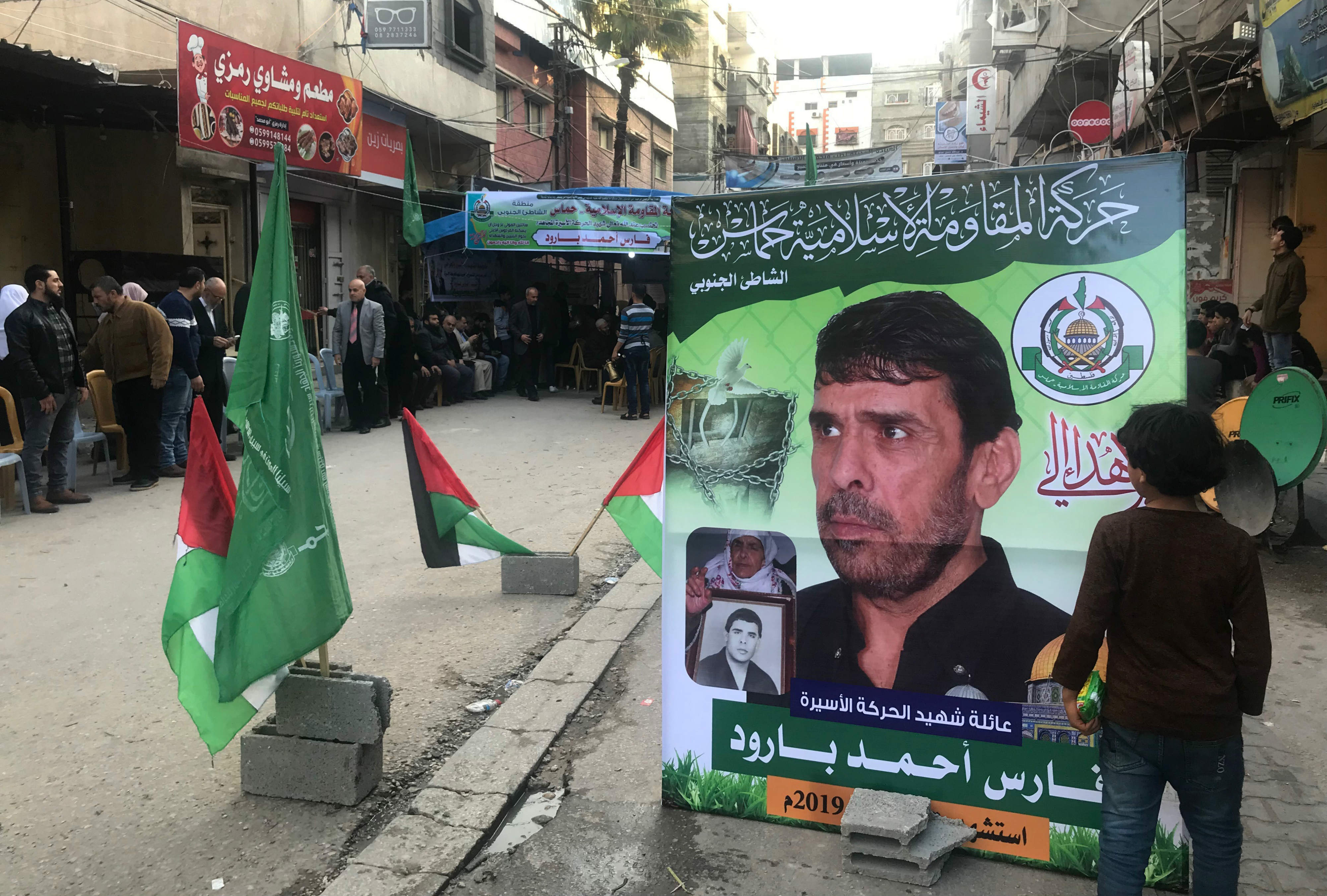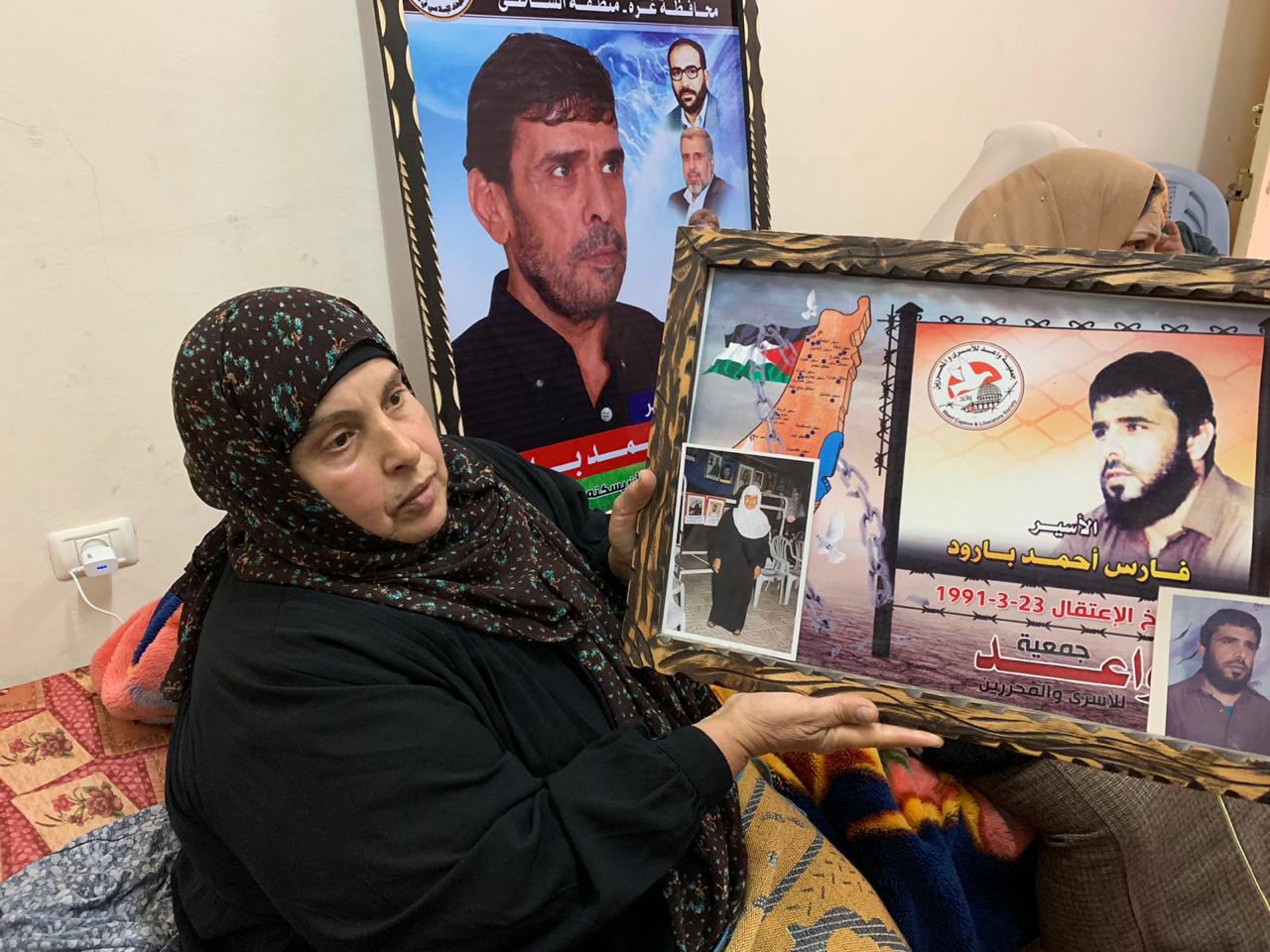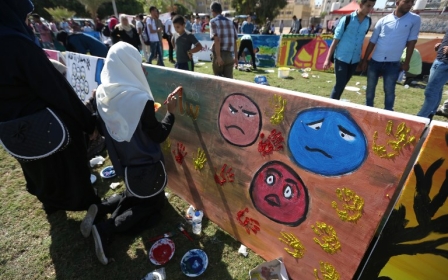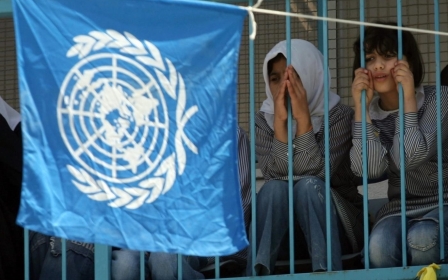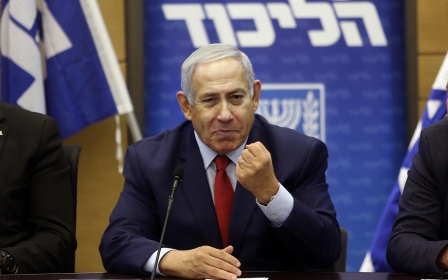Israel criticised for letting ill Palestinian prisoner die without medical care
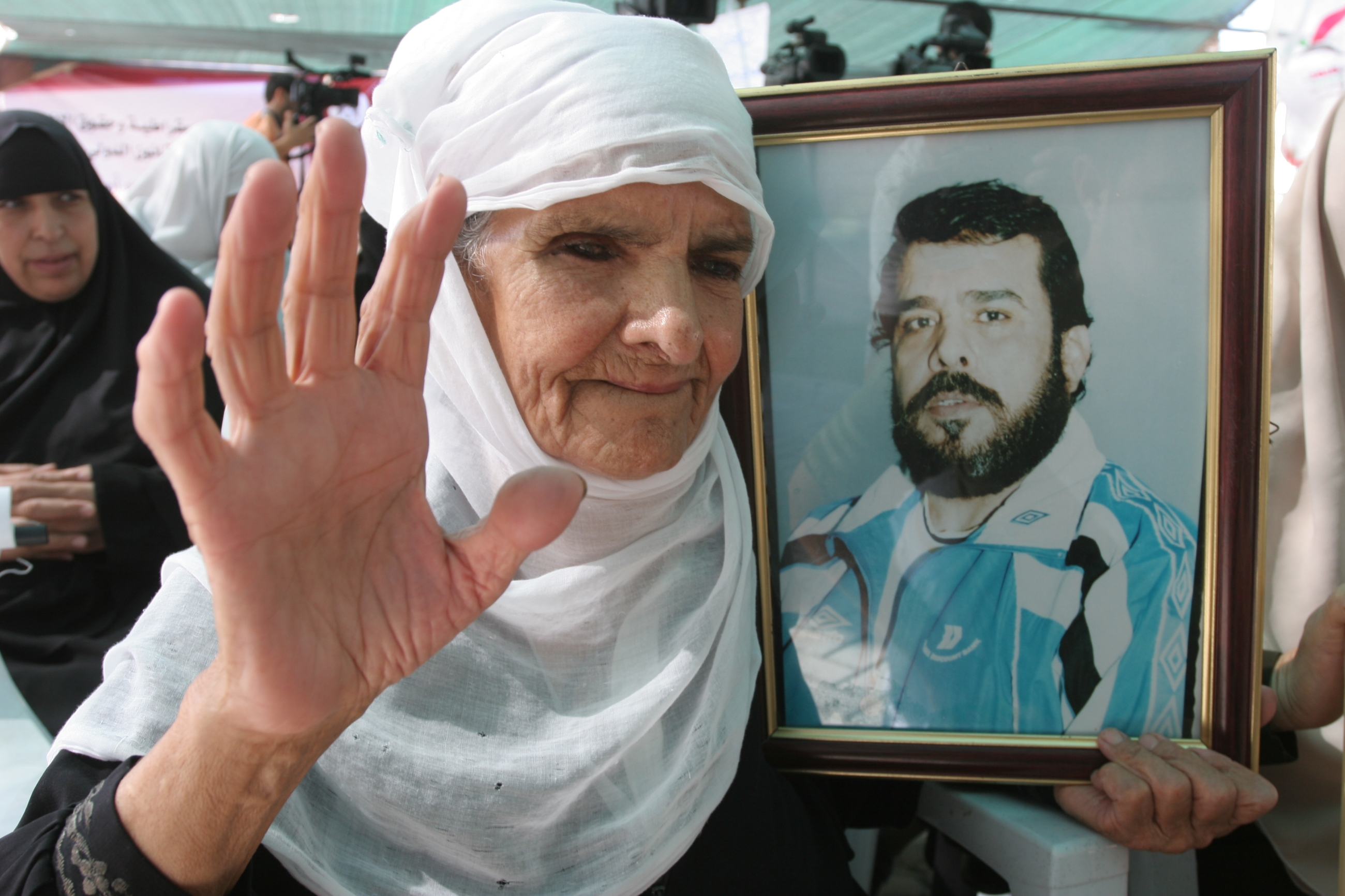
Israeli authorities have been criticised for apparently allowing a Palestinian prisoner to die while incarcerated, without allowing him potentially life-saving medical care.
Faris Baroud, a 51-year-old originally from the Gaza Strip, died on Wednesday in Israel’s Rimon prison.
Baroud was arrested in 1991, and later sentenced to life imprisonment on charges of killing an Israeli settler.
He spent 10 years overall in solitary confinement, which his relatives and supporters say affected him psychologically and physically.
Three years ago Baroud started suffering a number of health conditions, including hernias and liver disease.
“For three years we have received a lot of appeals from prisoners about Baroud’s health condition, it was deteriorating daily,” Islam Abdu, director of prisoners’ media in the Palestinian Ministry of Detainees and Ex-Detainees affairs, told Middle East Eye.
Baroud’s fellow inmates have told the ministry that he spent his last days in prison vomiting blood, and his health was worsening hour by hour.
According to Israel’s own regulations, prisoners in its care must be given necessary medical assistance.
Its Manual on the Laws of War details that: “Prisoners must be administered proper medical care, at the expense of the detaining state, and a monthly follow-up examination must be made of each detainee’s state of health.”
“It is incumbent on the detaining state to provide the prisoners with sufficient food, drink and clothing,” the manual adds.
However the Palestinian ministry and Baroud’s fellow inmates contend that he was denied such rights.
The Israeli prison authority has been approached for comment.
Worsening condition
Before Baroud’s death, prisoners in his section began protesting, expressing their anger at the Israeli authorities’ inaction and attempting to provoke them into transferring him to hospital.
After 10 days of protests and riots, the Israeli authorities transferred Baroud to hospital.
He was pronounced dead the same day.
“I had the ability to talk to him a couple of times, he was always coughing and his voice was weak. I could tell how bad his health was from his voice,” Abdu said.
Baroud has been allowed medical treatment previously. On 18 November, a tumor and part of his liver were removed during surgery in Israel’s Sorouka medical centre. Months before his surgery, Baroud participated in a large-scale prisoner hunger strike.
According to Abdu, Baroud was not given proper time to convalesce after his surgery.
“He was sent back to Rimon prison immediately after the surgery. He was supposed to stay in the hospital until he recovers, as such surgeries need intensive care,” Abdu said.
Three weeks ago, Baroud contacted Dr Hasan Khalaf, a consultant in internal medicine from the Gaza Strip.
Before Baroud called, Khalaf was told by the detainees ministry that he was going to receive a phone call from a Palestinian prisoner in Rimon prison that needed his advice.
“When Mr Faris called me, his voice was weak and he told me he had had a chronic abdominal pain for months, he felt weak and was emaciated,” Khalaf told MEE.
“He didn’t know his disease, he was not allowed to take any medical tests or X-rays, he was prevented from taking medications and I didn’t have the ability to diagnose his health situation,” Khalaf said.
“I felt so sad because I couldn’t help him with anything. The phone call didn’t last more than four minutes.”
Baroud told Khalaf that he was only allowed to take paracetamol and acamol painkillers, and he was prevented from contacting any medical staff or asking for medical support.
Futile wait
Baroud’s father died when he was two years old, and he was raised in the Gaza Strip’s al-Amal Orphanage because his mother couldn’t afford to care for him.
At 18 he left the orphanage. Five years later he was arrested for killing an Israeli settler.
According to al-Dameer Prisoners Support and Human Rights Association, Baroud was supposed to be released in 2014, as part of a prisoner swap deal that would have seen prisoners arrested before the 1993 Oslo Accords freed.
However, though his name was on a list of 30 prisoners to be freed, Israel reneged on the promise to release him.
'God released him from the Israeli prison’s torture'
- Fayza Baroud, sister
His family, especially his mother, were longing to greet him on release.
“We decorated the streets, sprayed his name on the walls and my mum started dancing, despite the fact that she lost her eyesight out of grief. Happiness and hope filled our hearts!” Baroud’s 55-year-old sister, Fayza Baroud, recalled.
“The next day, they informed us that the exchange deal was cancelled, and we lost hope that we would see him again.”
From 2005, Baroud’s mother, Raya Obeid, was denied visiting rights, and she participated in weekly protests demanding his freedom and requesting access to visit him in prison. After 28 years of waiting for his release, Obeid died in May 2017.
“His health deteriorated after the loss of our mother,” Fayza said, followed by a long pause.
“God released him from the Israeli prison’s torture.”
Refusal to cooperate
The Palestinian detainees ministry says it is constantly frustrated by Israeli authorities’ refusal to provide it, prisoners or their families information about inmates’ health status, medical tests or medical history.
The ministry has turned to the International Committee of the Red Cross, asking it to intervene and ask Israel to provide prisoners with their medical history documentation, especially after being released. Still, the Israeli authorities refuse to cooperate.
Some 700 Palestinians in Israeli prisons have chronic illnesses and are in need of specialist care, according to the ministry.
Around 120 need urgent surgery. 24 prisoners are suffering from cancer, including 15 who are being held at the Ramle prison clinic due to their severe health issues.
Since the Israeli occupation of the West Bank and Gaza Strip began in 1967, 218 Palestinian prisoners have died in Israeli jails, with more than 60 due to negligence of health care, according to the ministry.
As for Baroud, the ministry turned to the central Israeli court in southern Israel’s Beersheva, asking for an autopsy to be carried out in the presence of a Palestinian forensic doctor to understand the causes of his death, and requesting his body then be handed over to his family in the Gaza Strip.
The Israeli court has not yet responded to the ministry’s request.
Middle East Eye propose une couverture et une analyse indépendantes et incomparables du Moyen-Orient, de l’Afrique du Nord et d’autres régions du monde. Pour en savoir plus sur la reprise de ce contenu et les frais qui s’appliquent, veuillez remplir ce formulaire [en anglais]. Pour en savoir plus sur MEE, cliquez ici [en anglais].


